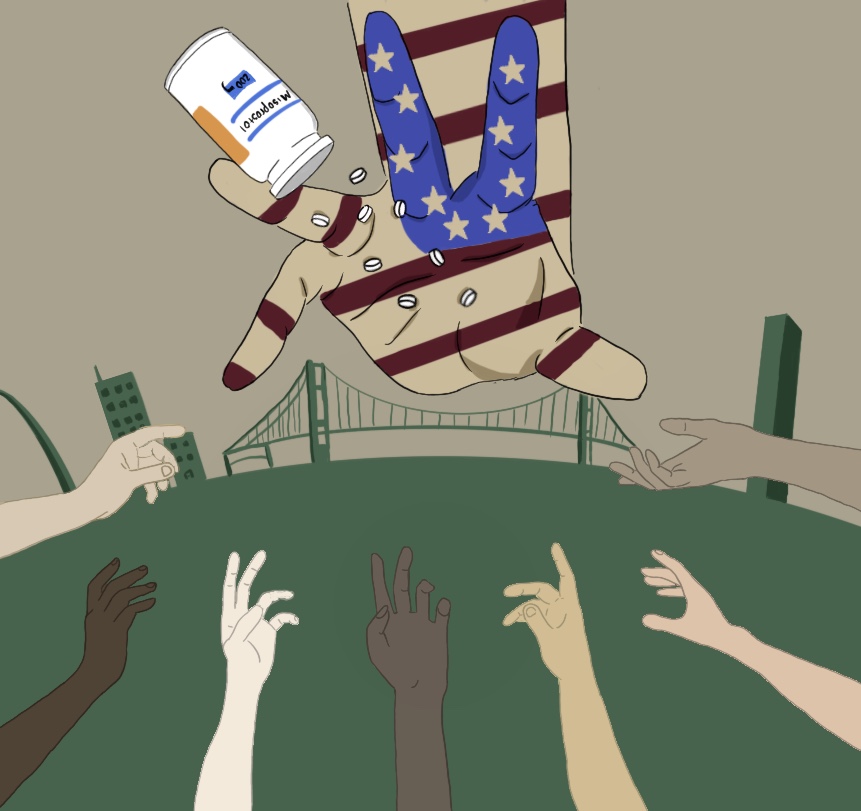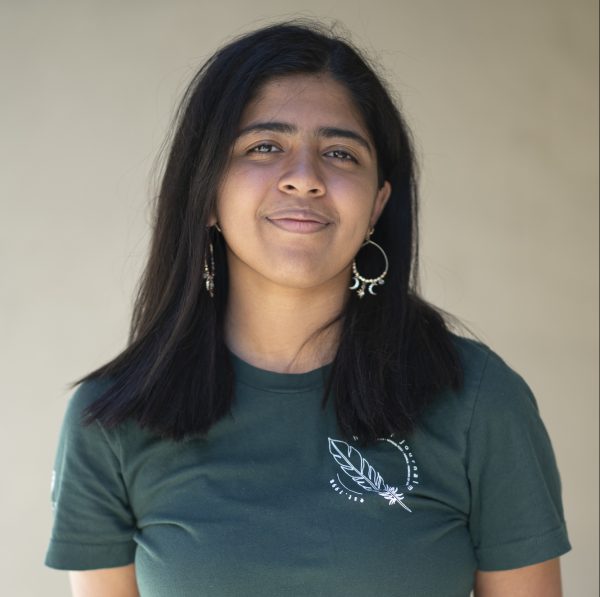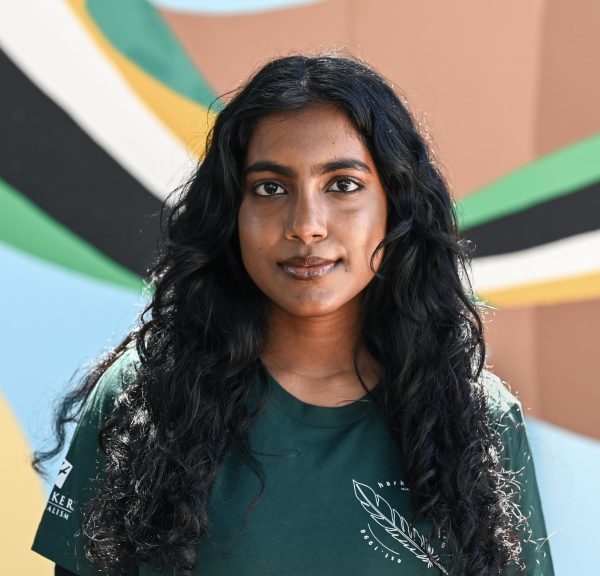Pulse of the People: Reaching for the right of choice
As new restrictions on abortion medications arise after the overturning of Roe v. Wade, women grapple with losing the ability to make decisions about their own bodies. The abortion debate arose in the 1800s and continues to shape political and social divides in our country.
May 12, 2023
Content Warning: This article contains mentions of abortion, rape and incest.
Since June 2022, women across the country have grappled with the consequences of this decision when the Supreme Court overturned Roe v. Wade. In a recent development, American pharmacy Walgreens announced in March that they would no longer provide abortion medicine in states where Republican officials threatened to take legal action. Danco Laboratories, the manufacturer of the widely-used abortion medication mifepristone, has sued the Food and Drug Administration (FDA) to prevent access to the drug. As more restrictions arise, women in America are slowly losing their right to bodily autonomy, more than fifty years after its establishment.
“Roe v. Wade is probably the biggest Supreme Court case to affect abortion laws in general,” FEM (Feminism) Club vice president Carol Wininger (12) said. “[This overturning] negatively harms the accessibility of abortions in many, many states, especially the conservative ones. I know that it’s already controversial to get abortions in those states, so it’s just going to make it worse.”
Issues surrounding abortion date back to the 1800s, when Connecticut defined abortion as a criminal offense. Since then, female advocates in the field of reproductive rights have founded organizations such as the American Birth Control League and Planned Parenthood. In the 1970s, the Supreme Court deliberated the case of Jane Roe, also known as Norma McCorvey, who challenged a Texas law that allowed abortion only in cases that posed a risk to a woman’s life. The defendant, Henry Wade, argued that the law allowing such an abortion violated the Constitution. At the time, 30 states prohibited abortion without any exception, and 16 states banned it except in certain cases such as rape, incest or health threats.
On January 22, 1973, the Supreme Court ruled to invalidate laws that forbid women from seeking an abortion. The case established that the right to privacy enshrined in the Constitution “is broad enough to encompass a woman’s decision whether or not to terminate her pregnancy.” Roe v. Wade upheld the right to abortion in all 50 states, and since then, more accessible and safe methods of receiving an abortion have appeared throughout the country.
Roe v. Wade represented a culmination of decades’ worth of activism, but the Supreme Court’s decision on June 24, 2022 would once again deny women of their fundamental rights. Roe v. Wade established abortion as a federal right throughout the entire nation, but with its recent decision, federal protection for abortion rights has disappeared, with several states outlawing abortion. Moreover, abortion isn’t just a gender issue: it’s a poverty and race-related issue as well.
“[This overturn] is detrimental to the U.S. as a whole because some people will have the opportunity to get safe abortions but other people won’t, so they’ll have to spend extra money to go to states that do have abortions,” Women for Women International chapter president Ishani Sood (11) said. “Or, they’ll have complications giving birth and have to deal with those consequences. That’s really unfair and it’ll divide the country into separate halves.”
Lack of protection for abortion nationwide leaves millions of women vulnerable and subject to abuse, some more than others. In the U.S., 75% of abortion patients live 250% below the federal poverty level, and more than 50% of those patients are women of color. 60% of these abortion patients already have children, and their reasons for obtaining an abortion can range from life-threatening childbirth issues to their unborn child being a product of rape and incest. In denying abortion access, Roe v. Wade forces many women to undergo the high medical risks that childbirth entails: the risk of death with childbirth is 14 times as much as the risk of abortion.
Pro-life advocates offer a different perspective to this issue. Prominent pro-life activist Wynette Sills, who is based in Sacramento, empathizes with these unborn children, especially since she spent her childhood knowing her mother initially wanted an abortion.
“The progressives in our culture think of themselves as a voice for the little guy, the disenfranchised, the marginalized, the poor,” Sills said. “They’re seeking diversity and equity and inclusion, and yet, they discriminate against what we know to be a human being who’s just much smaller and in many ways doesn’t quite look like what we think of as a human being. At those early stages of pregnancy, I can understand that, but at some point in pregnancy, most open-minded people can see that.”
Sills also shared her experiences witnessing fetuses being aborted late in pregnancies, such as 24 weeks. Not only does this weigh against human conscience, but Sills feels that easy access to abortion is falsely advertised to young women. In reality, abortion is a painful and life-impacting experience.
“If you’ve watched videos about the chemical abortion pill — that is such a really, really unfair messaging to young women,” Sills said. “I have yet to encounter a single woman who’s voluntarily agreed to undergo the chemical abortion procedure more than once. Once is typically too much for most women to endure because it’s a miscarriage experience.”
Over the last 50 years, abortion has been weaponized as a political tool to divide groups of people. While some believe that it is important that women be able to choose what to do with their child, some believe that abortion is a cruel and harmful process. The debate over abortion will undoubtedly shape the nation for years to come.




![LALC Vice President of External Affairs Raeanne Li (11) explains the International Phonetic Alphabet to attendees. "We decided to have more fun topics this year instead of just talking about the same things every year so our older members can also [enjoy],” Raeanne said.](https://harkeraquila.com/wp-content/uploads/2025/10/DSC_4627-1200x795.jpg)


















![“[Building nerf blasters] became this outlet of creativity for me that hasn't been matched by anything else. The process [of] making a build complete to your desire is such a painstakingly difficult process, but I've had to learn from [the skills needed from] soldering to proper painting. There's so many different options for everything, if you think about it, it exists. The best part is [that] if it doesn't exist, you can build it yourself," Ishaan Parate said.](https://harkeraquila.com/wp-content/uploads/2022/08/DSC_8149-900x604.jpg)




![“When I came into high school, I was ready to be a follower. But DECA was a game changer for me. It helped me overcome my fear of public speaking, and it's played such a major role in who I've become today. To be able to successfully lead a chapter of 150 students, an officer team and be one of the upperclassmen I once really admired is something I'm [really] proud of,” Anvitha Tummala ('21) said.](https://harkeraquila.com/wp-content/uploads/2021/07/Screen-Shot-2021-07-25-at-9.50.05-AM-900x594.png)







![“I think getting up in the morning and having a sense of purpose [is exciting]. I think without a certain amount of drive, life is kind of obsolete and mundane, and I think having that every single day is what makes each day unique and kind of makes life exciting,” Neymika Jain (12) said.](https://harkeraquila.com/wp-content/uploads/2017/06/Screen-Shot-2017-06-03-at-4.54.16-PM.png)








![“My slogan is ‘slow feet, don’t eat, and I’m hungry.’ You need to run fast to get where you are–you aren't going to get those championships if you aren't fast,” Angel Cervantes (12) said. “I want to do well in school on my tests and in track and win championships for my team. I live by that, [and] I can do that anywhere: in the classroom or on the field.”](https://harkeraquila.com/wp-content/uploads/2018/06/DSC5146-900x601.jpg)
![“[Volleyball has] taught me how to fall correctly, and another thing it taught is that you don’t have to be the best at something to be good at it. If you just hit the ball in a smart way, then it still scores points and you’re good at it. You could be a background player and still make a much bigger impact on the team than you would think,” Anya Gert (’20) said.](https://harkeraquila.com/wp-content/uploads/2020/06/AnnaGert_JinTuan_HoHPhotoEdited-600x900.jpeg)

![“I'm not nearly there yet, but [my confidence has] definitely been getting better since I was pretty shy and timid coming into Harker my freshman year. I know that there's a lot of people that are really confident in what they do, and I really admire them. Everyone's so driven and that has really pushed me to kind of try to find my own place in high school and be more confident,” Alyssa Huang (’20) said.](https://harkeraquila.com/wp-content/uploads/2020/06/AlyssaHuang_EmilyChen_HoHPhoto-900x749.jpeg)












